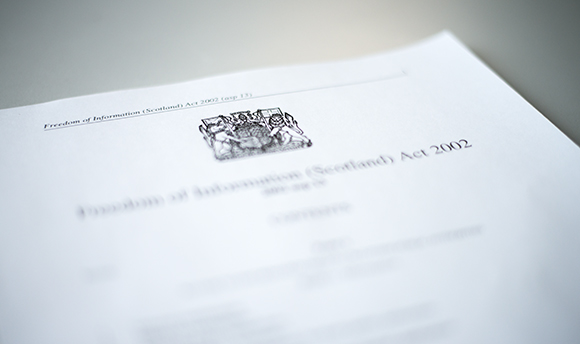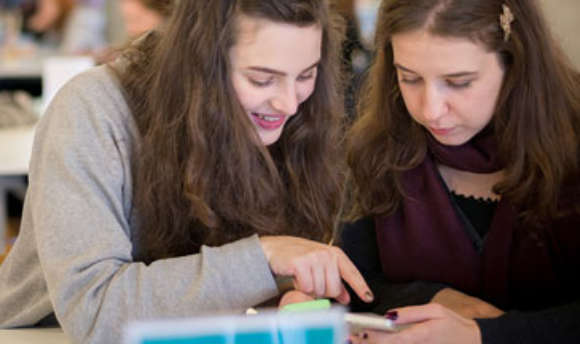Academic Integrity Policy
Queen Margaret University is a signatory of the QAA Academic Integrity Charter for UK Higher Education and this policy reflects such commitment to promote academic integrity.
The Academic Integrity Policy sets out the obligations of students and staff of Queen Margaret University, and of those at validated or accredited partner institutions, to uphold the integrity of awards conferred by the University. It also sets out the duty of the University and its recognised partner institutions to promote, facilitate and protect academic integrity.
References in this policy to a named/designated University Officer may include their properly appointed delegate, and an officer of equivalent standing/designation at a partner organisation.
1.1. This policy is applicable to all students enrolled on degree programmes or other credit-bearing provision at Queen Margaret University, including taught undergraduate, taught postgraduate and doctoral level programmes. This includes students studying at partner organisations where Queen Margaret University is the awarding body.
1.2. Details of systems and procedures for implementing this policy may vary between the University and its contracted partners, but the interpretation of this policy and related procedures must be consistent with the overall Queen Margaret University academic integrity policy. This policy does not absolve partner organisations of their responsibilities and obligations as provided for in individual agreements.
1.3. Staff at Queen Margaret University who are involved in the assessment of academic work, and all staff in partner institutions who are recognised by the University as being involved in such work, should refer to this policy for guidance where they are concerned that there has been a breach of academic integrity. Staff should refer also to supporting guidance on protecting the security of the University’s assessment arrangements against e-cheating, particularly the unauthorised, unacknowledged use of Generative AI.
1.4. This policy should be read in conjunction with the University’s General Assessment Regulations and the University’s Student Misconduct Regulations.
1.5. These accompanying policies outline the steps the University takes to promote academic integrity in assessment, and the steps it puts in place should it be alleged that academic integrity has been breached.
2.1 Academic Integrity
Academic Integrity is defined by the International Centre for Academic Integrity as “a commitment to six fundamental values: honesty, trust, fairness, respect, responsibility, and courage. By embracing these fundamental values, instructors, students, staff, and administrators create effective scholarly communities where integrity is a touchstone. Without them, the work of teachers, learners, and researchers loses value and credibility”
Where these values are not upheld by a student, the work presented may constitute a breach of academic integrity in the form of Poor Academic Practice or Academic Misconduct, as defined below.
2.2. Poor Academic Practice
Poor academic practice is defined within the University’s Student Misconduct Regulations as unintentional low-level infringements of the General Assessment Regulations that may be interpreted as a lack of understanding on the part of the student.
2.3. Academic Misconduct
Academic misconduct is defined within the University’s General Assessment Regulations and the Student Misconduct Regulations as cheating or any attempt by a student to gain an unfair advantage in any assessment, including an examination. Where a student is suspected of academic misconduct, the provisions of the Student Misconduct Regulations will apply.
3.1 Students will act with academic integrity.
3.2 Students are responsible for the integrity of their own learning and will ensure familiarity with the University’s General Assessment Regulations, individual Programme Regulations and other relevant policies and regulations, including the Student Misconduct regulations.
3.3 Students will access the relevant support available to them on their programme of study to ensure any work presented meets the standard of the programme.
3.4 The University General Assessment Regulations set out the wider responsibilities of all students being assessed to:
- Recognise the role of assessment in the achievement and recognition of their learning.
- Familiarise themselves with the assessment schedule and assessment specification for all modules on their programme, including an awareness of the extent to which generative AI can be used in any given assessment.
- Familiarise themselves with the examination periods (both first attempt and reassessment and make themselves available for the examination period).
- Attend examinations and observe the Instruction to Candidates in such Examinations.
- Attend all other types of assessment, for example, practical examinations, class tests and presentations.
- Submit all work for assessment in accordance with the requirements for their programme.
- Engage with the published process for requesting extenuating circumstances in advance of the Board of Examiners.
3.5 Students are not permitted to substantially reproduce the same piece of course work for more than one module, except where they are explicitly required to do so by the assignment specification.
3.6 Students must not submit work of which they are not the author as if it is their own work. Fraudulent practices such as copying, collusion, plagiarism (i.e. the presentation by an individual of another person’s ideas or work, in any medium, published or unpublished, as though they were their own) are serious academic offences and will incur appropriate penalties.
3.7 Such work would include, but is not limited to work obtained from an essay bank or website essay writing service, or produced by an Artificial Intelligence language model programme. Such presentation is cheating and will be dealt with under the University’s Student Misconduct Regulations.
3.8 All students are expected to seek clear guidance on the form and manner in which assessments are to be completed. If a student has engaged in fraudulent practices as described above, for whatever reason, they are encouraged to declare this to the module coordinator before such work is submitted, and to seek guidance on how to make good their standing with the subject and the University.
3.9 The University has a policy to use the TurnItIn UK similarity checker, or other equivalent systems, to help students avoid plagiarism and improve their scholarship skills. This service is available to all matriculated students at QMU. Students will use the programmes provided to check the similarity and originality of their work. Academic staff may submit student work to TurnItIn UK or another equivalent system.
3.10 Students must ensure the proper acknowledgement of the borrowings from other sources, whether published or unpublished.
4.1 Staff will ensure students have access to the correct resources to ensure an understanding of what good academic practice is, as well as ensure students understand what is expected in terms of examinations or assessed work.
4.2 Staff should act as role models for appropriate academic behaviour and will follow the principles of academic integrity in any research or production of academic work.
4.3 Any member of staff who suspects academic misconduct or poor academic practice should ensure the appropriate procedure is followed.
5.1 The University Court, by delegating to Senate and its standing committees, will maintain academic standards.
5.2 The University will provide services to support and educate students on good academic practice.
5.3 The University will ensure all policies and processes used to uphold academic integrity are regularly reviewed and made readily available to staff.
5.4 The University will provide tools and programmes to staff and students to detect and deter academic misconduct.
6.1 Poor Academic Practice and Local Intervention
6.1.1 Any marker, or Module Co-ordinator, who has concerns about the academic integrity of a student’s work should meet with the Programme Leader initially to assess whether the work presented represents poor academic practice or represents a potential case of academic misconduct.
6.1.2 Potential breaches of academic integrity may be investigated initially at the local level. The outcome of that investigation may result in the allegation moving to investigation as a case of academic misconduct.
6.1.3 Where such breach is alleged and investigated at local level initially, a structured oral discussion with the student regarding their process for creating their assignment submission, led by one of the module team may establish whether, and the extent to which, a student has breached the assessment guidelines.
6.1.4 Poor Academic practice refers to low level infringements of the General Assessment Regulations that may be interpreted as a lack of understanding on the part of the student.
6.1.5 Where the work presented is determined as Poor Academic Practice, the Module Coordinator or Programme Leader will meet with the student to provide feedback and direct the student to access further support on academic integrity.
6.1.6 Where the work presented represents Poor Academic Practice the mark for the work may be reduced as appropriate to the rubric.
6.1.7 Where the work presented is determined as potential Academic Misconduct, the allegation will move to the process set out in Paragraphs 6.2 – 6.5 below.
6.1.8 Allegations may move directly to Stage 1 of the Student Misconduct Regulations where the assessment at 6.1.1 is that, on the evidence available, the work presented should be investigated as a potential case of academic misconduct.
6.2 Academic Misconduct
6.2.1 Academic misconduct is a breach of academic integrity defined as cheating or any attempt by a student to gain an unfair advantage in any assessment, including examinations.
6.2.2 Academic Misconduct includes but is not limited to infringements of the General Assessment Regulations that constitute:
-
- Plagiarism, including the unauthorized and unattributed use of generative AI in written assignments
- Collusion.
- Falsification.
- Examination room misconduct, including infringements listed in 1-3 above.
- Online assessment misconduct, including infringements listed in 1-3 above.
- Any other conduct in assessment which would give an unfair advantage to the student.
Further definition of the above terms can be found in the Appendix to this policy.
6.2.3 Academic Misconduct concerns are reported to the Head of Division. The Head of Division will consult with the School Manager or Dean of School to determine if matters are progressed under Stage 1 or Stage 2 of the Student Misconduct Regulations.
6.2.4 While matters are progressed under these regulations, a student may receive a 0 RP (result pending).
6.3 Investigation of Academic Misconduct – Stage 1
6.3.1 If it is determined that there is, at face value (prima facie), evidence of a case to answer, matters will progress to a Stage 1 meeting as set out in the Student Misconduct Regulations.
6.3.2 The key principles set out in the Student Misconduct Regulations will apply at all stages of investigation under this policy.
6.3.3 A Stage 1 meeting will be convened by the Dean or a properly appointed delegated individual. Such meeting provides the opportunity for a student to have set out to them the allegation, and for the student to answer the allegation, and to provide any relevant mitigations before a decision on outcome is made.
6.3.4 The student will have at least 14 days’ notice of any meeting, unless otherwise agreed by the Student and the University, and will be advised of the allegations and any supporting evidence. The student will be given the opportunity to provide their own supporting evidence ahead of the meeting. This should be submitted at least 7 days before the meeting, unless an alternative timeline has been agreed. The outcome of the meeting will be communicated to the student as soon as possible and no later than 48 hours after the meeting.
6.3.5 If there is a finding of academic misconduct, the Dean or delegated individual will make a recommendation to the Board of Examiners. The Board of Examiners confirms the mark.
6.3.6 Recommendations possible under the regulations at Stage 1 include:
-
- Feedback provided on examination or assessment.
- Required to undertake additional training or learning on good academic practice e.g. referencing.
- Mark reduced as appropriate.
- Recommendation to the Board of Examiners that the mark reduced to 0.
- Recommendation to the Board of Examiners that the mark is capped at a pass i.e. 40% UG/50% TPG.
6.4 Investigation of Academic Misconduct - Stage 2
6.4.1 Under the Student Misconduct Regulations, the Dean may recommend that an allegation of academic misconduct proceeds to Stage 2 where the matter may not be resolved appropriately or fully investigated through the Stage 1 process, or the likely penalty, were the allegation proved, is reserved to Stage 2.
6.4.2 Stage 2 allegations will be heard by a Disciplinary Panel at a hearing. Where the matter is dealt with at Stage 2 the University Secretary will appoint an Investigating Officer who will investigate the allegations and produce a report for the panel with their findings.
6.4.3 Recommendations possible under Stage 2 include any Stage 1 outcome, and in addition:
-
- Reduction of degree classification.
- Disallowed from further re-assessment.
- Suspension.
- Withdrawal.
6.4.4 For students on professional programmes, the relevant Fitness to Practise Policy may also apply.
TBC
This policy will be reviewed annually and approved by Senate.
September 2025 v1.0
Definitions of Academic Misconduct
Plagiarism
The process or practice of using another person’s ideas or work and pretending it is your own. This includes E-cheating, specifically the unauthorized and unattributed use of generative Artificial Intelligence (AI) in written assignments, and essay banks.
Collusion
Agreement between students to act together to deceive or unauthorised collaboration by students on a piece of work or assessment.
Falsification
Changing, creating or misrepresenting information or data in order to deceive.
Examination room misconduct
Any breach of the exam regulations, including the use of unauthorised material, disruptive behaviour, and any attempt to copy or confer with other students.
Online exam misconduct
Any breach of the exam regulations, including use of unauthorised material and any attempt to confer or collaborate with other students or third parties.


